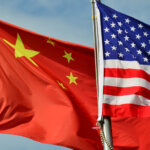Toyota Motor Corporation is set to move the first 100 residents into its ambitious “Woven City” at the base of Mount Fuji in Japan later this year, marking a key milestone in the project first announced in 2020.
The initial residents, mainly Toyota employees and their families, will pave the way for the community to expand to about 2,000 individuals during its initial phases, the company revealed on Monday.
“This year, residents will begin moving in as we slowly bring Woven City to life,” said Toyota Chairman Akio Toyoda during a press conference at CES in Las Vegas. “We aim to accelerate the pace at which new technologies can be tested and developed at Woven City.”
A “Living Laboratory” for Future Technologies
Conceived as a “living laboratory,” Woven City is designed to be a fully sustainable urban environment showcasing cutting-edge advancements in artificial intelligence, robotics, self-driving cars, and smart home technologies.
Akio Toyoda initially unveiled the plans five years ago, framing the city as a space to fast-track innovation in a real-world setting. However, Woven City won’t be open to the public for at least two more years, and questions remain about its profitability.
“Will this Woven City make Toyota any money? Well, maybe not,” Toyoda acknowledged. “As global citizens, I believe Toyota has a responsibility to invest in our collective future.”
Financial Commitment and Leadership Vision
Woven Planet’s Chief Financial Officer, Kenta Kon, declined to specify the total cost of the project, describing it as a “big investment.” He noted that Akio Toyoda himself has personally invested in the venture.
While profitability is not the immediate focus, Woven CEO Hajime Kumabe emphasized his intention for the unit to generate returns in the long term. However, he added that Woven City’s value might be challenging to quantify, as its innovations will integrate deeply with Toyota’s broader operations, including next-generation car production.
Toyota appointed Kumabe in 2023 to transition Woven from a research-heavy initiative into a production-driven entity. This includes developing the Arene software platform, a vehicle operating system intended to streamline car development and reduce costs. Arene will be a core feature in Toyota’s next-generation electric vehicles, set to launch in 2026.
Testing Innovations in Urban Mobility
Although Arene won’t initially be deployed in mass production vehicles at Woven City, it will eventually power advanced mobility solutions within the site. John Absmeier, Woven’s Chief Technology Officer, explained that the technology would extend beyond cars to enhance overall mobility infrastructure.
Building the City of Tomorrow
As the first residents prepare to move in, Toyota remains committed to using Woven City as a testing ground for the technologies shaping the future of urban living. With significant investments and a vision to innovate beyond the automotive industry, the project highlights the company’s ambition to redefine sustainability and smart-city development.
Whether Woven City becomes a profitable venture or a demonstration of Toyota’s role as a global innovator, the initiative is poised to contribute valuable insights into the next generation of urban design and mobility solutions.
- Story Sourced From Bloomberg






